Assistant Commissioner Laurence Taylor, head of Counter Terrorism Policing, warned this week of a steep rise in hostile state activity, including the use of criminal proxies and online disinformation to destabilise the UK.
Speaking to myself and other journalists, he said, “We have seen a five fold increase in the number of investigations that we are managing, and it’s now about 20 percent of our casework,” Taylor said. He identified “the big three, Iran, Russia and China” as the primary state actors involved. “They are more capable, and the methods they deploy are often quite different,” he added.
Those methods now include recruiting criminal networks to deliver attacks and sow disruption. “You’re seeing those sort of criminal proxies being used by those foreign states,” he said, citing the case of a Russian-backed arson plot on a London business, which led to a 29-year prison sentence.
Taylor said disinformation and manipulation online are central to these efforts. “We’re also seeing significant increases in mis and disinformation,” he told journalists. “That mis and disinformation is creating a more destabilised environment where some of our more extremist views are then getting more traction and creating more risk.”
He described a hybrid threat picture that combines physical attacks, espionage, and the weaponisation of information. “That state threat expands from everything to physical threats on the ground, to espionage and our real sort of traditional spying by other states,” he said. The online component, he warned, amplifies domestic extremism by exploiting polarised debates and vulnerable audiences.
The risks are heightened by the nature of social media platforms. “It’s very easy for a young person, for example, to look up something, let’s call it ISIS, and then a whole load of material starts coming across their phone,” he said. “With the exponential growth of artificial intelligence and the algorithms that the platforms use, it’s very easy for that content to push you down the river.”
He was frank about what policing can and cannot do in that space. “We can’t police the internet. We’re not the moral police,” he said. “Extremism sits between terrorism and hate crime, and that’s much harder to deal with. It’s legal, and the police deal with illegality, not things that are legal.”
Deputy Assistant Commissioner Jon Savell said the same dynamic plays out through automation. “The proliferation of bots raising the profile of bits of information fuels extreme views,” he said. “That is either hostile state interference with information, or individuals motivated to generate disinformation.”
Taylor told the Home Affairs Committee last week that these trends are measurable. Since 2021, referrals to the Counter Terrorism Internet Referral Unit have risen by 150 percent, and could reach 40,000 a year by 2029. “We saw a 48 percent increase after the attacks on 7 October,” he said. “Some of that was very clearly being driven by robotics rather than individuals posting online.”
Much of that content, he added, originates overseas. “A lot of this stuff plays out in communities in exactly the same way as counter terrorism, through social media or issues on the ground that look and feel the same as anything else,” he said. The result is a blurring between hostile state operations and homegrown extremism, where conspiracy theories, propaganda and polarisation reinforce one another.
Taylor said hostile states often conceal their role through intermediaries. “We have seen examples where people are probably unaware that it’s state sponsored, or unaware to the extent of the state sponsorship, and therefore conducting these things in that sort of ignorance,” he said.
Despite that, he argued the UK’s counter-terrorism system is well placed to adapt, with strong partnerships at the border and internationally. “We work really closely with international partners,” he said. “We’ve got really strong partnerships, particularly with our Five Eyes partners, and we are far better at being able to identify people we need to be concerned about.”
Taylor warned that the line between terrorism, extremism, and state interference is narrowing, and that the digital ecosystem is the common ground. “We need to create an environment that is hostile to those who are intent on harming our communities, making it as hard as we can for them to operate,” he said.




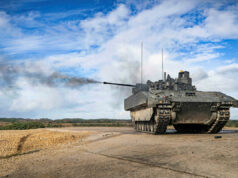
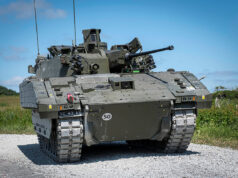
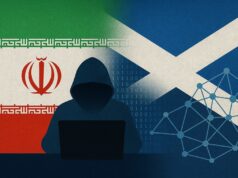

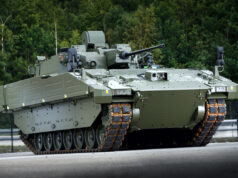
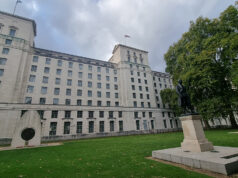


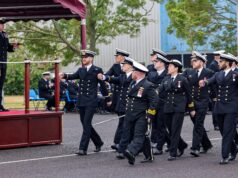

It’s bizarre that it’s taken now to stark waking up to this.. china has always been about polical warfare. The very nature of the PLA is not that of a traditional army to just fight a war or deter war. The purpose of the PLA is to increase the political power of the Chinese communist party via any means it can. It even published this in the Political Work Guidelines of the People’s Liberation Army. 2003 and updates in 2020.. both go on about the three warfares 1) public opinion 2) psychological warfare 3) law war.
This is deeply embedded in the chinas concept of protracted war.. the concept can really be distilled down to the fact that victory is always a political act. You increase your political power and influence ( across your population, your enemies population and the wider world).. actually fighting a war is only one factor of the wider political picture… with Kinetic conflict essentially there to assist in creating greater political power.. essentially creating suffering to impact public opinion and the impact of psychological warfare…to put it crudely you get a population to mistrust its government, mistrust itself constantly fight internally and then when its ripe you start a long drawn out conflict and watch your enemies crumble politically as the deaths come in, the population suffers hardships and inevitably blame their own political leadership or some other elements of their own nation.
This is how china has played geostrategy since Mao.. ( read Mao “ on Correcting Mistaken Ideas in the Party) The purpose of influence operations is political power always.. that is how you have to see china. China is the CCP there is and cannot be any seperation and to the CCP everything is about its own political power.. china exists to increase the political power of the CCP. It’s why once you really get this you understand why it’s inevitable china will go to war over Taiwan, the CCP have interwoven Taiwan and the concept of making chine one nation again in its very story of political power for 80 years…it cannot back away without losing political power and political power is everything to the CCP..it does not give a shit about money, wealth, lives, happiness or anything other than political power.. once you accept the concept of political power being everything to the CCP then war become inevitable in regards to Taiwan unless The CCP thinks it will gain that power without it ( essentially it can force the US to give up on Taiwan and force Taiwan to reunification ) and within its political inflection points its set up ( Xi still being alive and in power and by 2045)
Interestingly and most worrying is the change in tone in the 2020 update, which indicates to me china thinks it’s going to go kinetic around Taiwan. The 2020 regulations changed the central committees, emphasize focusing on the PLA main responsibility and main business of “preparing for war,” with combat effectiveness as the main metric for assessing political work. This change in emphasis cannot be highlighted enough and is a huge red flag.. because it goes seems to go against the sprit of Mao
“ These comrades regard military affairs and politics as opposed to each other and refuse to recognize that military affairs are only one means of accomplishing political tasks. Some even say, “If you are good militarily, naturally you are good politically; if you are not good militarily, you cannot be any good politically, to go a step further and give military affairs a leading position over politics“
Therefore to empathise the military preparedness for war over the wider political struggle could be seen as going against Maoist ideas of political power and armed conflict, that is a very very big thing for the CCP to do and quit frankly is as big a red flag of intent as them building the capability to lay down 36 nuclear boats. The thing about the CCP is because they are “Political first and always” they cannot help but tell their population what is expected and will happen… so if you listen and suspend your own beliefs they are a story book to be read.